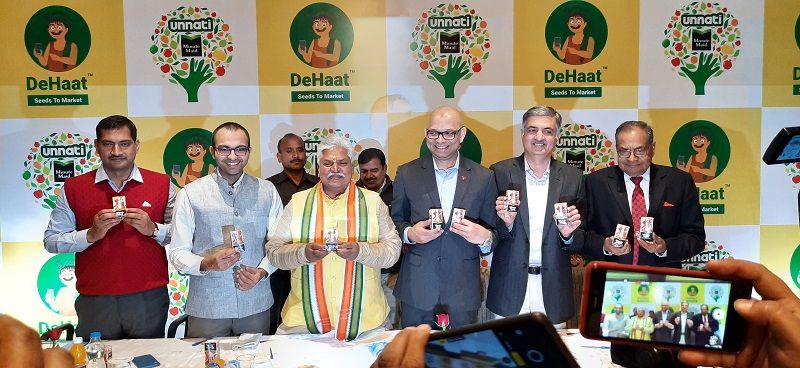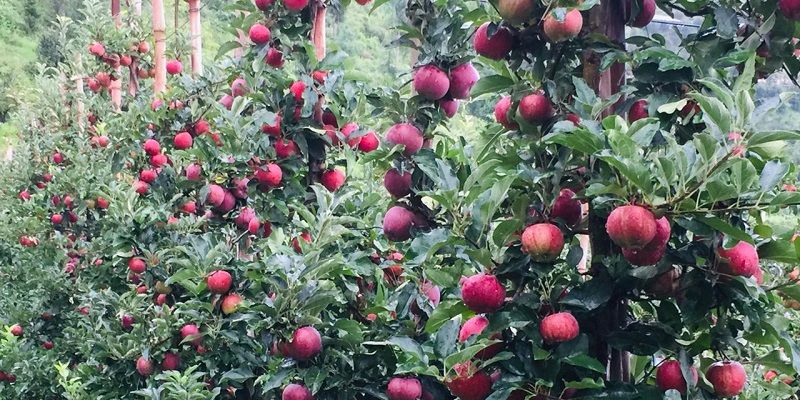
Ishteyaque Amjad, VP of Sustainability and Public Affairs, Coca-Cola India and South West Asia
Coca-Cola is one of the few brands that almost everyone in the country can recognise. For decades, The Coca-Cola Company has accelerated and evolved its growth in India by catering to localised and regional tastes. To achieve this, they identified and launched several strategic global and local initiatives over the years to factor in the growth of all stakeholders. They have 54 plants in India that address every part of the value chain, from farm to fork, including benefiting farmers.
In a conversation with YourStory, Ishteyaque Amjad, Vice President — Public Affairs and Communication, Coca-Cola India and South West Asia, says that the geographic spread of their plants has enabled them to serve the consumers even during COVID-19. He also talks about how Coca-Cola has been working with its farmers and industry partners to integrate the message of sustainability, especially after COVID-19.
He says the company identifies with being local. For example, they source local mangoes called Neelam while selling their brand Maaza in Tamil Nadu. In north India, Kesar mangoes are used in the drink.
When it comes to sustainability, Coca-Cola says it focuses on water stewardship, climate protection, packaging, and recycling, along with effluent and waste management.
“A business needs to integrate sustainability as it grows. It cannot be separate from your business. Sustainability is the core today,” says Ishteyaque, who spearheads the company's government relations, policy advocacy, communications and sustainability departments. According to Coca-Cola, he is an advocate for deploying business solutions to address societal changes.
Here are the excerpts of the interview:
YourStory (YS): One of the most important areas of sustainability is water usage, but India is facing a water shortage too. How is Coca-Cola addressing the situation?
Ishteyaque Amjad (IA): When it comes to water, there is an imbalance. We have less than 3 percent freshwater on the earth. So when you look at our beverages, we have to ensure that our water is replenished. For every litre consumed. we need to add back the amount of water and improve water availability.
The water usage ratio in our plants is 1.7 litres for every litre of beverage produced. We have replenished water in India more than three times of what we have produced, and have helped people living in drought-hit areas of Rajasthan, Bundelkhand (Uttar Pradesh), parts of Karnataka, Tamil Nadu, and Maharashtra.
As a beverage company, water quality and availability are vital to our business. Over the last decade, we have set upon a mission to replenish the equivalent of water we use in our beverages.
We are strengthening our water stewardship strategies and our approach towards water stewardship and replenishment consists of 3R(s)– Reduce, Recycle and Replenish.
This has resulted in a 30 percent improvement in our Water Usage Ratio (WUR) through various initiatives – using best-in-class technology, as well as reusing and recycling water being drawn by our bottling partners.
We have created a water replenishment potential equivalent to 124.5 percent of water used by our operations. Our bottling partners have developed close to 300 water replenishment projects across the country.
By the end of 2018, these projects had created a replenishment potential of 11.7 billion litres of water. In addition to this, through the Coca-Cola India Foundation – Anandana, we have created a water replenishment potential of more than 13 billion litres of water, benefiting 800,000 Indian villagers since its inception in 2008.
YS: Coming to waste, plastic bottle pollution is a massive problem and the waste has even reached the bottom of the Marina Trench. How are you addressing this issue and focusing on recycling?
IA: Imagine a world without waste. We have to focus on the design aspect and improve our packaging for sustainability. We need sustainable plastics, for which recycling is the key. Plastic should be collected properly and should not end up in water bodies. But, we know we cannot do it alone. So you need partners.
We negotiate and buy credits from people who recycle PET bottles. Then there are producer responsibility organisations who we work with globally to find solutions to the plastic problem. We need to recycle anything that can be recycled, and not let them end up in rivers and oceans.
We have invested money in this.
To address the growing concern of plastic waste in India, we, along with other 31 companies including PepsiCo India, Bisleri, Diageo, and Reliance Industries, came together in 2019 to launch a packaging waste management venture.
Our collective aim is to mobilise over Rs 1,000 crore for developing an India-wide ecosystem for plastic waste management. The vision of this venture is to ensure that no recyclable packaging material ends up in landfills by 2025.

Coca-Cola Unnati Programme
We also have several partnerships with UNDP, State Municipal Authorities, The Date With Ocean Foundation (Founding member Afroz Shah), Saahas, Chintan, Hasirudala, and the American India Foundation to contribute towards achieving our vision of making sure plastics are recycled. We work with Material Recovery Centers (MRFs) for this purpose.
We also work with these agencies to cleanup prominent water bodies, mangroves and beaches, provide social security programmes for waste workers, generate awareness on waste management and PET recycling in government schools–for students and faculty, as well as their communities.
YS: Is Coca-Cola working with farmers to increase yields and create a better product for its brands?
IA: The efficiency of farmers is very low in India because of old agricultural practices and small farms. Our partners, Jain Irrigation, help them with processes to grow good quality fruit. With better fruit and better-tasting product, we have closed the loop between the consumer and the farmer. We say it is economic and financial sustainability in the farm-to-fork relationship.
You need to create a circular economy.
We have worked with orange farmers in Maharashtra to increase the juice content in the fruit and make the pulp better. We did a project in Uttarakhand for apples, and we have found a partner there to improve the gestation of the fruit from seven years to two years. Similarly, we have worked with litchi farmers in Bihar and grape farmers in Tamil Nadu. Over a period, the company launched Unnati Mango, Unnati Orange, Unnati Apple, and Unnati Litchi, with other partnerships in the pipeline across various states of India.
The biggest challenge faced by the fruit processing industry in India is limited and inconsistent availability of fruits. Through our Fruit Circular Economy initiative, we seek to address this challenge and provide new growth opportunities for farmers and local suppliers across India. Project Unnati, part of Fruit Circular Economy initiatives by Coca-Cola India Pvt Ltd, is aimed at improving the livelihood of farmers by providing and training them with improved and advanced agricultural techniques.
These programmes accelerate growth in the fruit processing industry in India by creating demand through new speciality fruit-based beverages. We are transforming the supply chain from grove to glass, benefiting farmers by aiding incremental yield, and applying modern agriculture practices (GAPS). We want to contribute to sustainable agriculture and help in achieving the national vision of doubling farmers’ income by 2022.

Coca-Cola supports apple orchards in Uttarkhand and Himachal Pradesh
YS: How has COVID-19 impacted Coca-Cola and what measures have you taken?
IA: We all know that COVID-19 pandemic impacted nations, economies and people globally in ways beyond imagination. Our first response to the pandemic was taking cognizance of the well-being of our people within the entire Coca-Cola ecosystem. The health and safety of our system associates have always been our priority and will continue to be the anchor for the majority of our decisions.
We revisited our entire strategy and realigned our focus on three strategic pillars of our operations – people, community and business continuity.
We took a decision to go dark with our advertisements and repurpose the resources towards the COVID-19 relief initiatives. Specifically, for India, we committed Rs 100 crore for COVID-19. Through these funds, we supported communities with immediate relief measures based on the need assessments.
We additionally collaborated with various civil society partners to identify and provide vital support for the health, safety and livelihood of daily wagers, and frontline warriors. We directed our resources across the country to provide safety feeding, hydration (through our wide product portfolio) and supported the frontline warriors and helped augment health infrastructure of the country. Our initial support of Rs 100 crore was generated from within the Coca-Cola system in India, and we received generous support from The Coca-Cola Foundation (TCCF).
We directed these funds towards two key pillars to extend community support by feeding daily wagers during the series of lockdowns. This was done in partnership with our bottling partners, civil society organisations, and local administration. We also extended hydration support to one crore people. We joined hands with partners like Care India, Akshaya Patra, Chintan, Hasirudala, and Saahas to provide immediate food and hydration security to the vulnerable groups across states.
The programmes benefited over two million people through safety feeding programmes, while also hydrating one crore migrants and daily wagers through company beverages.
We supported healthcare initiatives and supported 48 public hospitals across eight states in the country by providing PPE and safety hygiene kits to health care workers. We have also served 65,000-plus public service personnel across the nation.
(Edited by Kanishk Singh)
Want to make your startup journey smooth? YS Education brings a comprehensive Funding Course, where you also get a chance to pitch your business plan to top investors. Click here to know more.
Link : https://yourstory.com/2020/08/sustainability-covid-19-coca-cola-india-ishteyaque-amjad
Author :- Vishal Krishna ( )
August 19, 2020 at 05:35AM
YourStory




